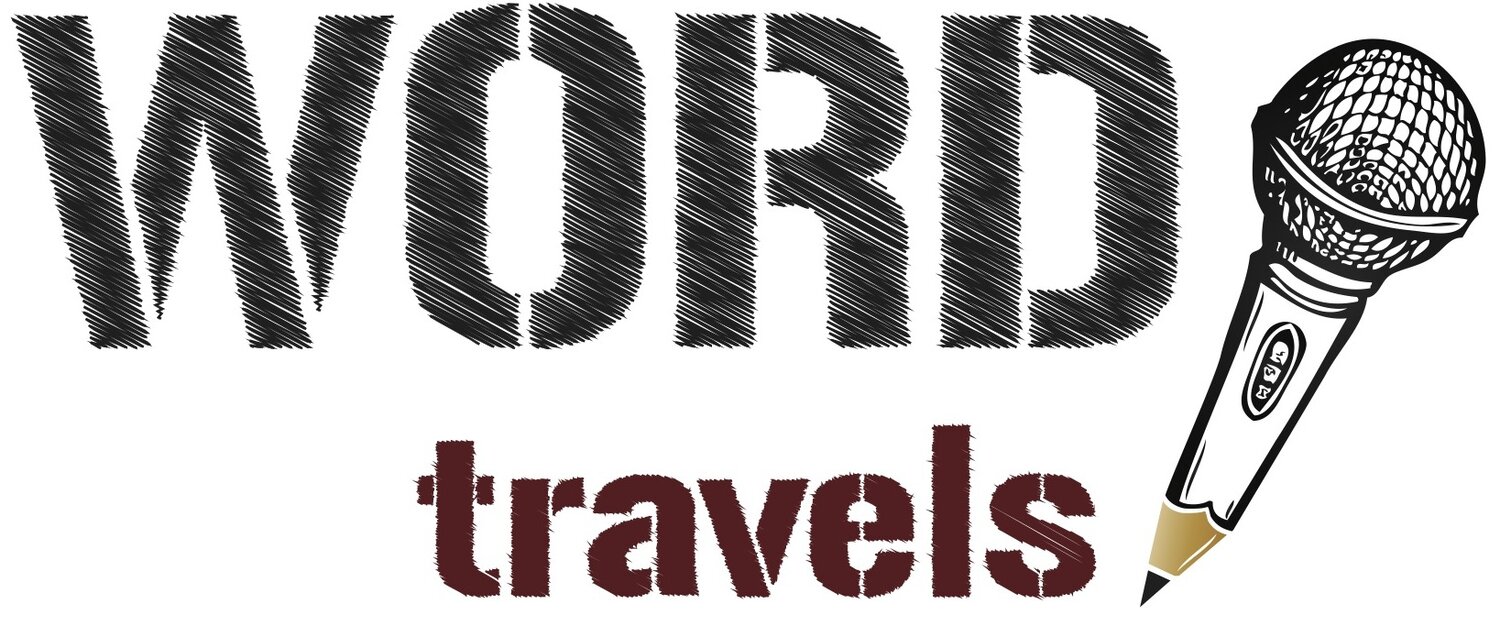An Interview with Candy Royalle
Candy Royalle is an award winning performing writer, performance artist, poet, storyteller, activist, educator and vulnerability advocate who fuses cinematic storytelling, poetry and unique vocal rhythms with confronting, political and heart thumping content seeking to break open closed hearts. Word Travels asked Candy some questions to find out what inspires her, what challenges her and what she sees for the future of spoken word.
What does spoken word mean to you? How does it differ from other performance or literary art forms?
Spoken word provides an opportunity for the artist to share personal stories, political ideas and philosophical musings, we reflect society back to itself and offer an opportunity to engage with people in a real, visceral and tangible way. Humans connect through the art of storytelling - whether amongst friends, through cinema or on stage, storytelling reconnects us with our humanity. It’s a shared experience - we gather, to hear each other and to be heard, which is different from reading or going to galleries. Additionally, good spoken word utilises aural tools to make the work sound a specific way - the use of alliteration, rhyme, onomatopoeias, repetition, tone and speed of delivery etc. makes it particularly beautiful and interesting to listen to.
How did you first get into spoken word?
When I was 19, a friend took me to “Bardfly” at The Friend in Hand Hotel in Glebe. The event was run by Tug Dumbly and Benito Del Fonzo. Though I had been writing since I was very young, I had never seen poetry performed. It changed my life.
What do you find most difficult about performance writing?
The most difficult aspect is trying to ensure each piece has its own feel, its own flow. It can sometimes be difficult not to produce pieces that sound too similar. I work hard on thinking of new ways to deliver work so that it’s interesting for both the audience and myself, as well as honouring the piece itself in the way it should be honoured.
What’s your favourite part about it?
I definitely love the connection I get to experience with an audience. Leading them on journeys and having them there with me, knowing they’re feeling my work, or that I’ve transported them somewhere, or even rallying them into some sort of positive social action. It all demonstrates the power of poetry.
What is your favourite piece to perform? Why?
This shifts and changes regularly. Pieces start to lose their magic if I perform them too often and so I try and rotate my work so that I don’t “kill” any particular piece. At the moment, I’m preparing some new work for some upcoming events and I’m really enjoying feeling them out and preparing them for the stage.
Who are some of your idols or inspirations?
Poetically I would say Suheir Hammad is one of my favourite poets - she’s fierce and political and unapologetically so. It’s nice to see an Arab woman taking up space. Creatively, a lot of my inspiration comes from Patti Smith, the original rock n roll poet and Frida Kahlo, fierce female extraordinaire.
What are your hopes for the future of the spoken word industry in Australia?
I’ve been in involved in the community for many years now and watching it steadily grow has been a beautiful thing to witness. One thing I’d like to see change is the imitation of the American Slam style, which has a very recognisable cadence and delivery style. I’d love to see emerging Australian poets carve out their own unique styles and discover their own voices. This to me is far more exciting than an imitation of a style that sounds predictable and tired…to me anyway!
Additionally, it’s important that marginalised voices are given as much space (if not more) than the dominant voices we hear so much from. I find those stories far more interesting and engaging. It’s time the poets with a platform better reflected the diversity of Australian culture.
Where can people see you perform next or find out more about you?
I’ll be appearing at a number of Sydney Writers Festival events.
People can also check out:
Interview by Sarah Fallon.

